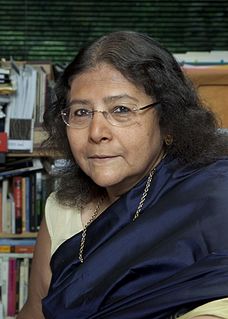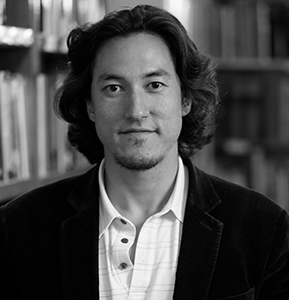A Quote by Sheila Jasanoff
I am kind of a sucker for democracy, so I do think that what kinds of citizens we have in our societies are more foundational than what kinds of governments we have, and that the responsibility for self-government is ultimately with us. But we also have learned through a couple thousand years of democracy that democracies are only as good as people's capacity to reflect on those questions.
Related Quotes
The moral case is, people say, "Oh they're not ready for democracy," but that's something someone who lives in a democracy would say about someone who doesn't live in a democracy. Well, if democracy is the highest form of human potential, then it can't be true for us and not for them. But, the practical case is democracies don't invade their neighbors. Democracies don't traffic in child soldiers. Democracies don't harbor terrorists as a state policy. So there's a reason to have more democratic states.
Democracy appears to be safer and less liable to revolution than oligarchy. For in oligarchies there is the double danger of the oligarchs falling out among themselves and also with the people; but in democracies there is only the danger of a quarrel with the oligarchs. No dissension worth mentioning arises among the people themselves. And we may further remark that a government which is composed of the middle class more nearly approximates to democracy than to oligarchy, and is the safest of the imperfect forms of government.
Gandhi is the other person. I believe Gandhi is the only person who knew about real democracy — not democracy as the right to go and buy what you want, but democracy as the responsibility to be accountable to everyone around you. Democracy begins with freedom from hunger, freedom from unemployment, freedom from fear, and freedom from hatred. To me, those are the real freedoms on the basis of which good human societies are based.
In a democracy it is ultimately for us, the citizens, to judge where to place the balance between security and privacy, safety and liberty. It's our lives and liberties that are threatened, not only by terrorism but also by massive depredations of our privacy in the name of counter-terrorism. If those companies from which governments actually take most of our intimate details want to show that they are still on the side of the angels, they had better join this struggle for transparency too.
When people in a democracy are not educated in the art of living -- to strengthen their conscience, compassion, and ability to question and think critically -- they can be easily manipulated by fear and propaganda. A democracy is only as wise as its citizens, and a democracy of ignorant citizens can be as dangerous as a dictatorship.
The kinds of people we need in government are precisely the kinds of people who are most reluctant to go into government -- people who understand the inherent dangers of power and feel a distaste for using it, but who may do so for a few years as a civic duty. The worst kind of people to have in government are those who see it as a golden opportunity to impose their own superior wisdom and virtue on others.
The human heart is the first home of democracy. It is where we embrace our questions: Can we be equitable? Can we be generous? Can we listen with our whole beings, not just our minds, and offer our attention rather than our opinion? And do we have enough resolve in our hearts to act courageously, relentlessly, without giving up, trusting our fellow citizens to join us in our determined pursuit-a living democracy?
I believe that people have a right to decide their own destinies; people own themselves. I also believe that, in a democracy, government exists because (and only so long as) individual citizens give it a temporary license to exist, in exchange for a promise that it will behave itself. In a democracy, you own the government. It doesn't own you.
There's no necessary connection between maximizing social utility or economic wealth and creating a flourishing democracy. The first does not guarantee the second. The only way to create a flourishing democracy is to find ways to reason together about the big questions, including hard questions about justice and the common good, to reason together about these questions so that we as citizens can decide how to shape the forces that govern our lives.
When we speak of the origin of western democracy it's precisely here, in this territory that the modern definition of democracy first emerged in city/states known now as Greece. This was coming from a society in which 30 thousand citizens had rights and 300 thousand were slaves and citizens without rights that lived in this territory. So that was the concept of western democracy; some citizens had the prerogative of exerting their civil and political rights while the others had none.
I call government that works the best for people open society, which is basically just another more general term for a democracy that is - you call it maybe a liberal democracy. It's not only majority rule but also respect for minorities and minority opinions and the rule of law. So it's really a sort of institutional democracy.
It has been observed that a pure democracy if it were practicable would be the most perfect government. Experience has proved that no position is more false than this. The ancient democracies in which the people themselves deliberated never possessed one good feature of government. Their very character was tyranny; their figure deformity.
































